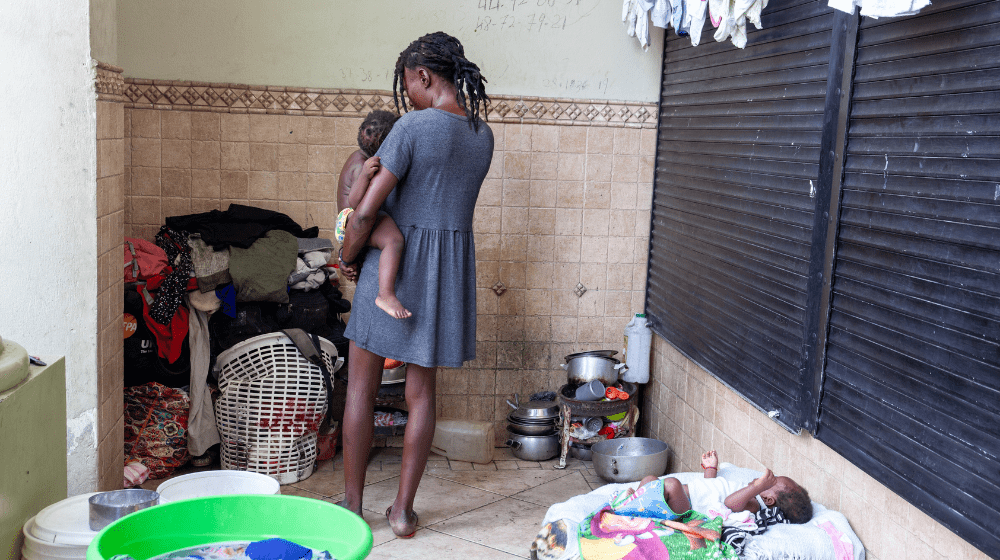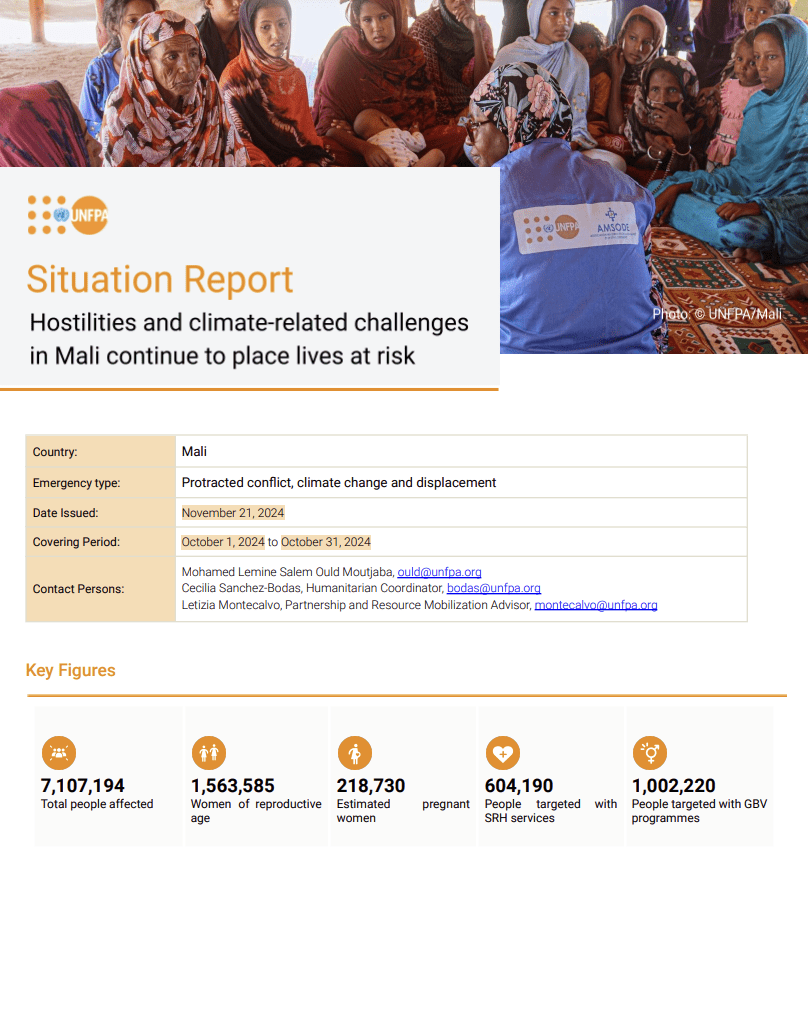
“The heart is fatigued.” Lives in ruins amid displacement in Gaza
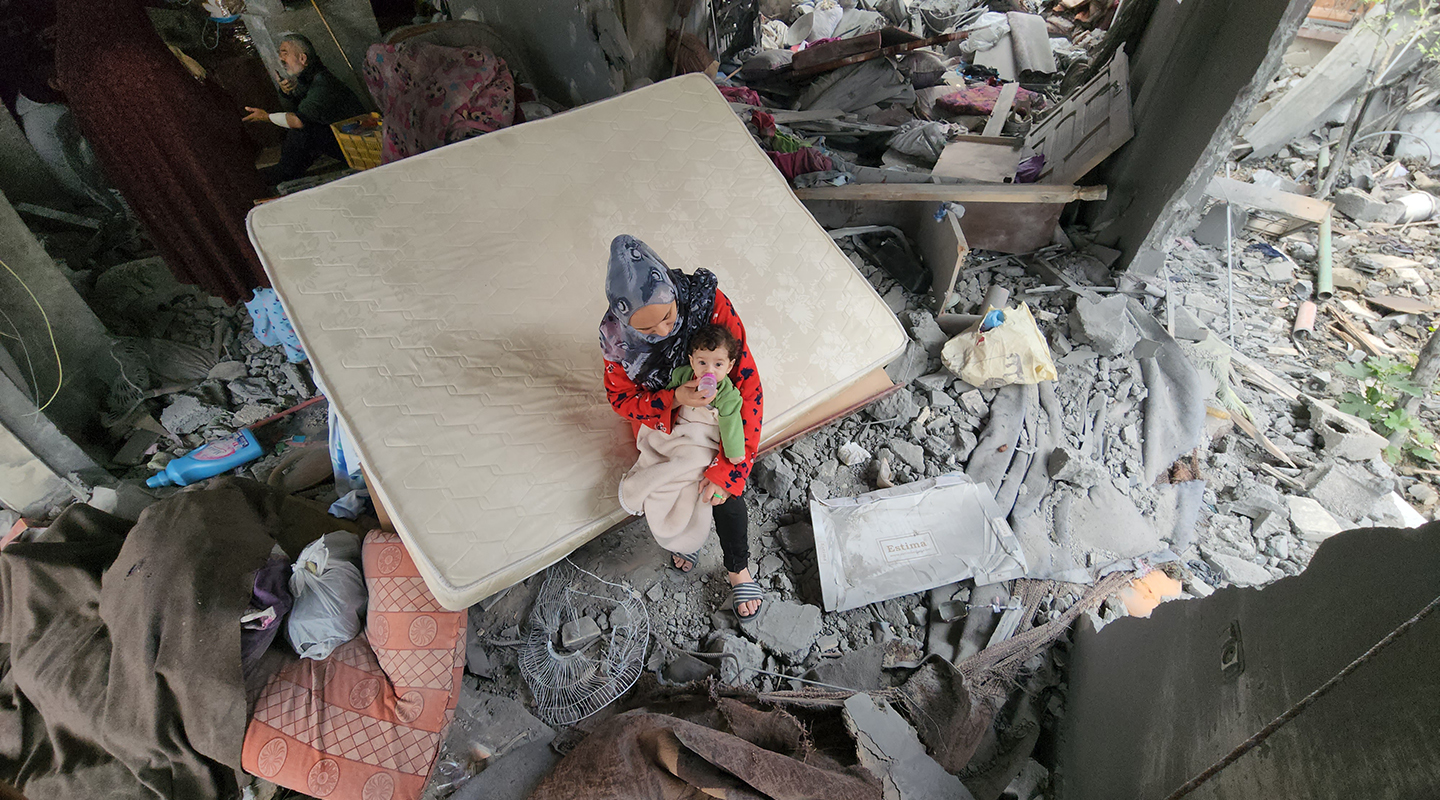
Almost ninety percent of the population of Gaza – 1.9 million people – have been displaced at least once by evacuation orders issued by Israeli Defense Forces, searching for something that does not exist: safety.
The woman and her family pictured above have chosen to stay in what remains of their destroyed home, so hopeless is the situation. They, like so many others in the following photos, live on a knife edge.
“The heart is fatigued, the will is broken, and the soul no longer desires anything.”
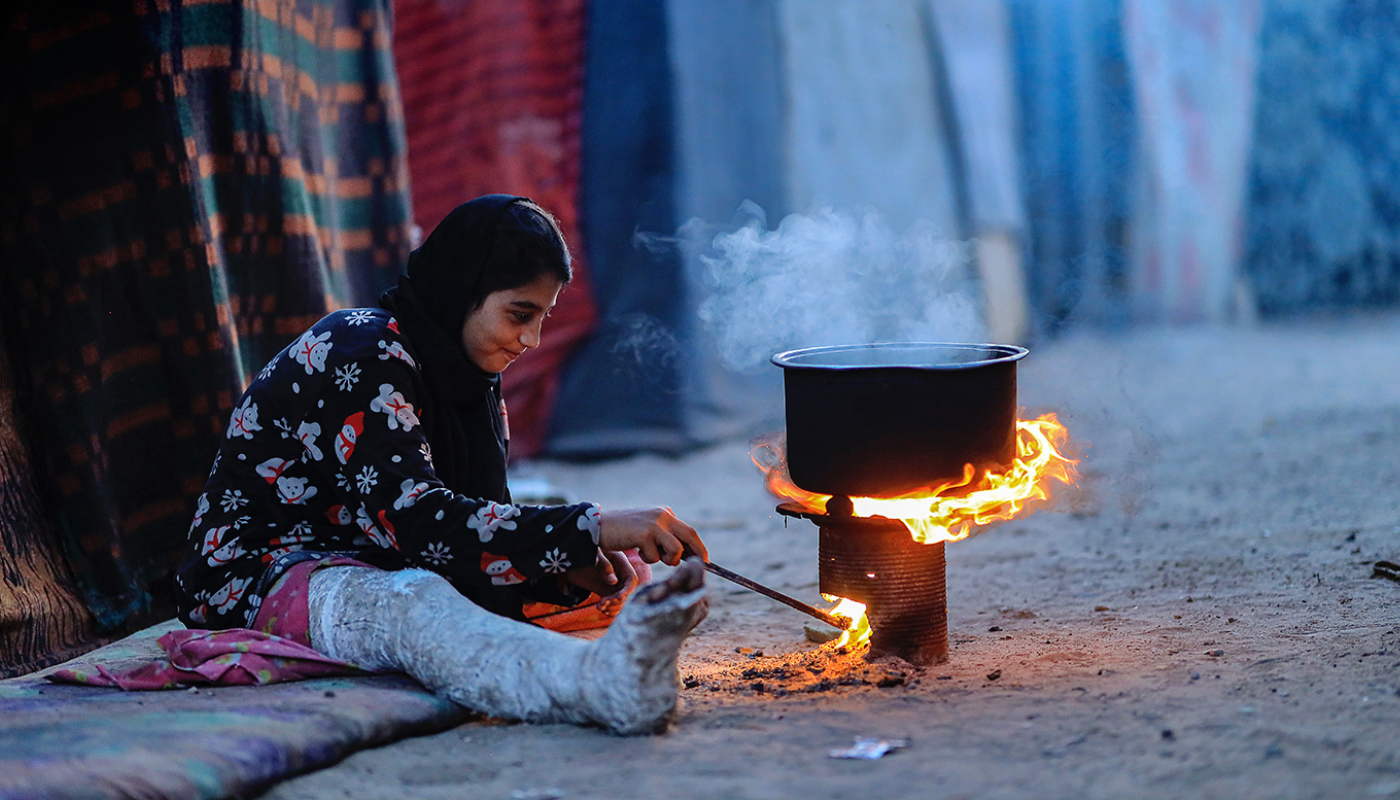
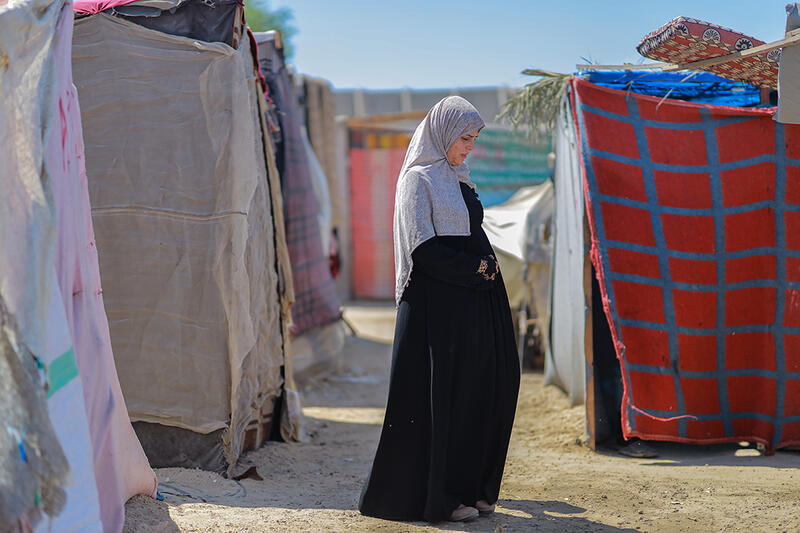
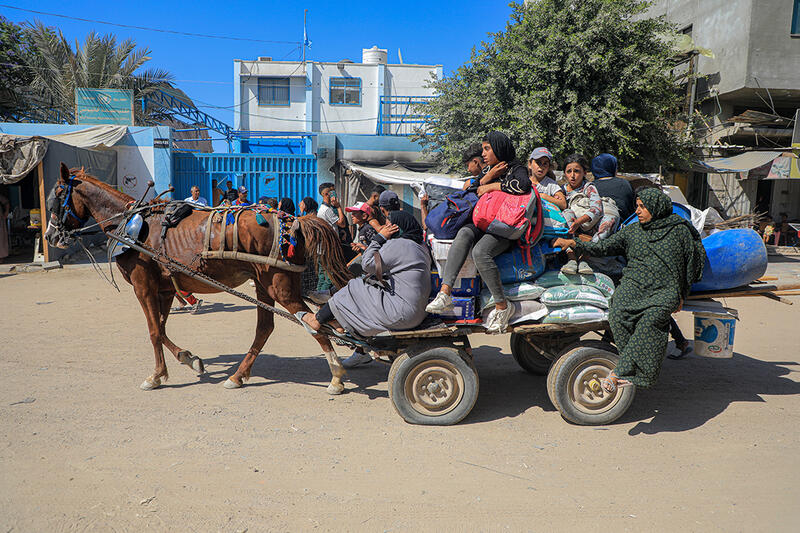
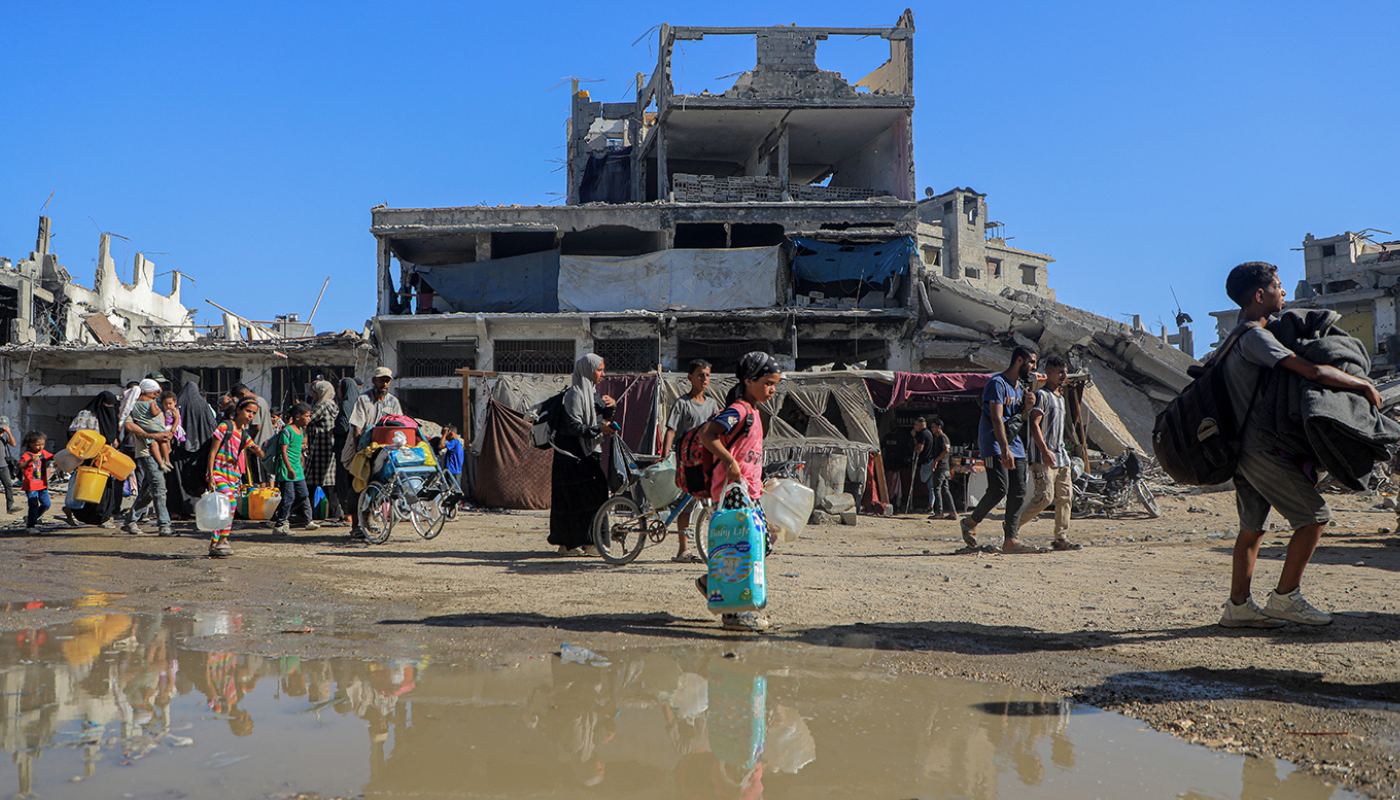
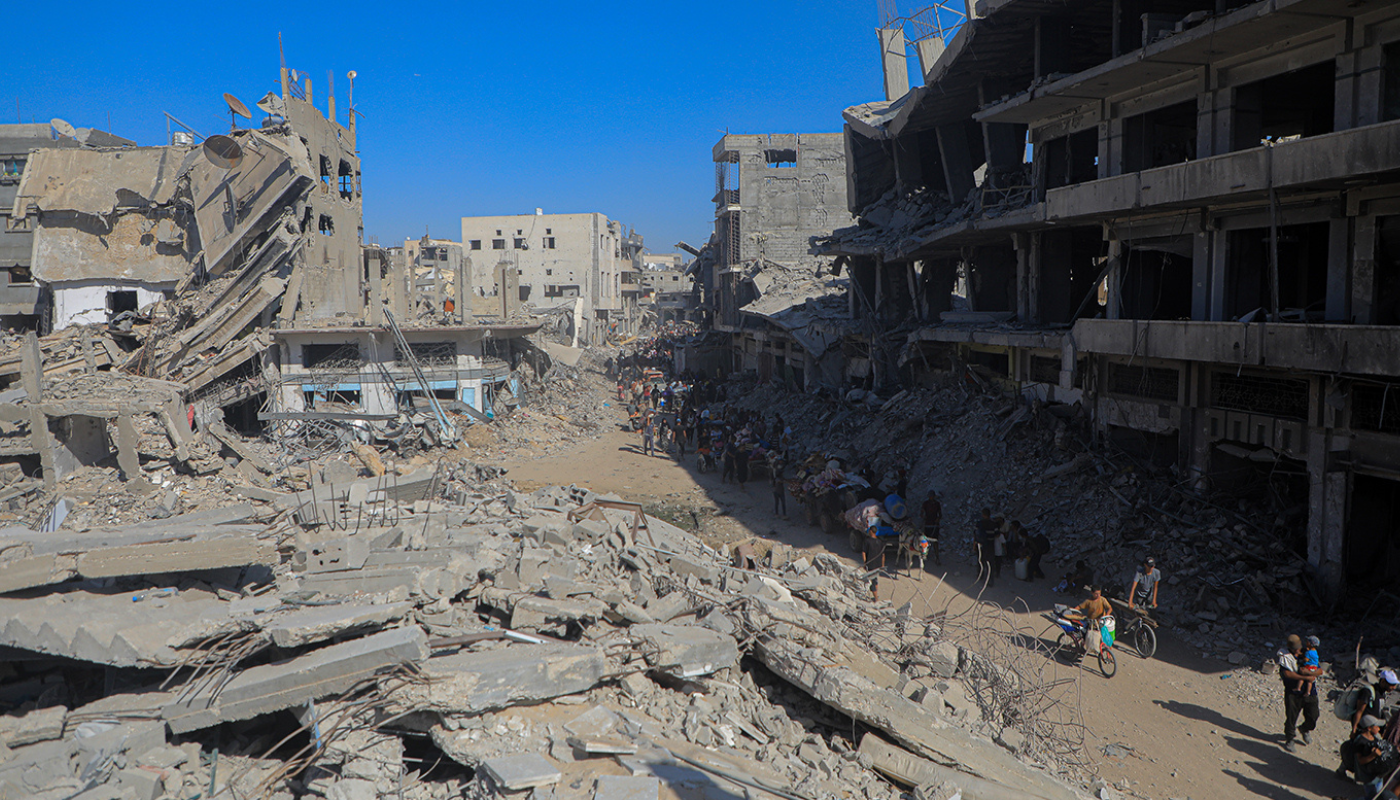
“My family and I are taking down our tent and packing our belongings for the second time this August, after being forced to move seven times since October. When will this ever end?”
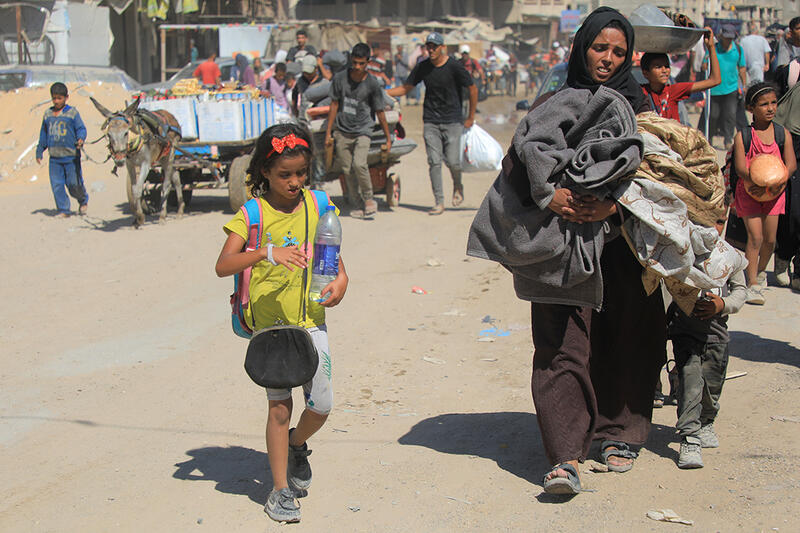
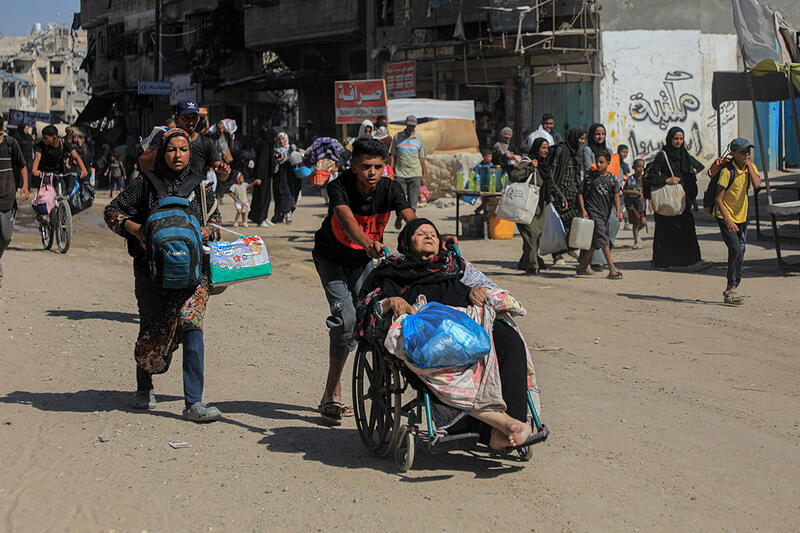
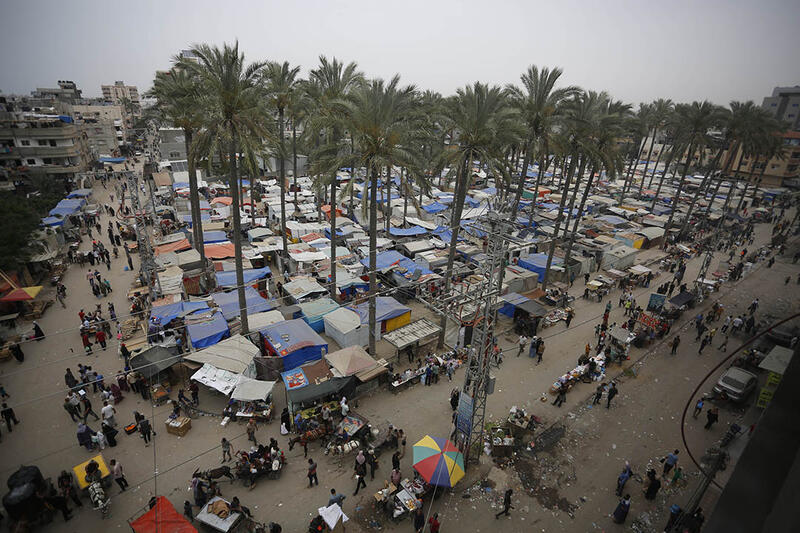
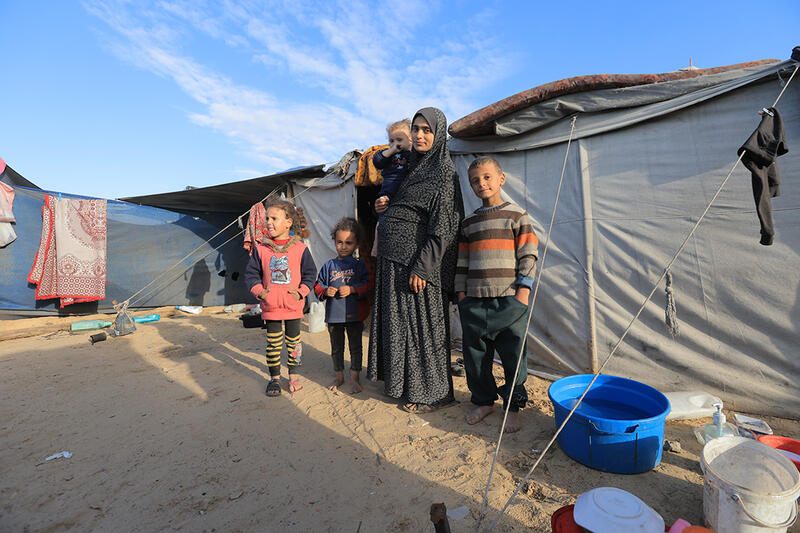
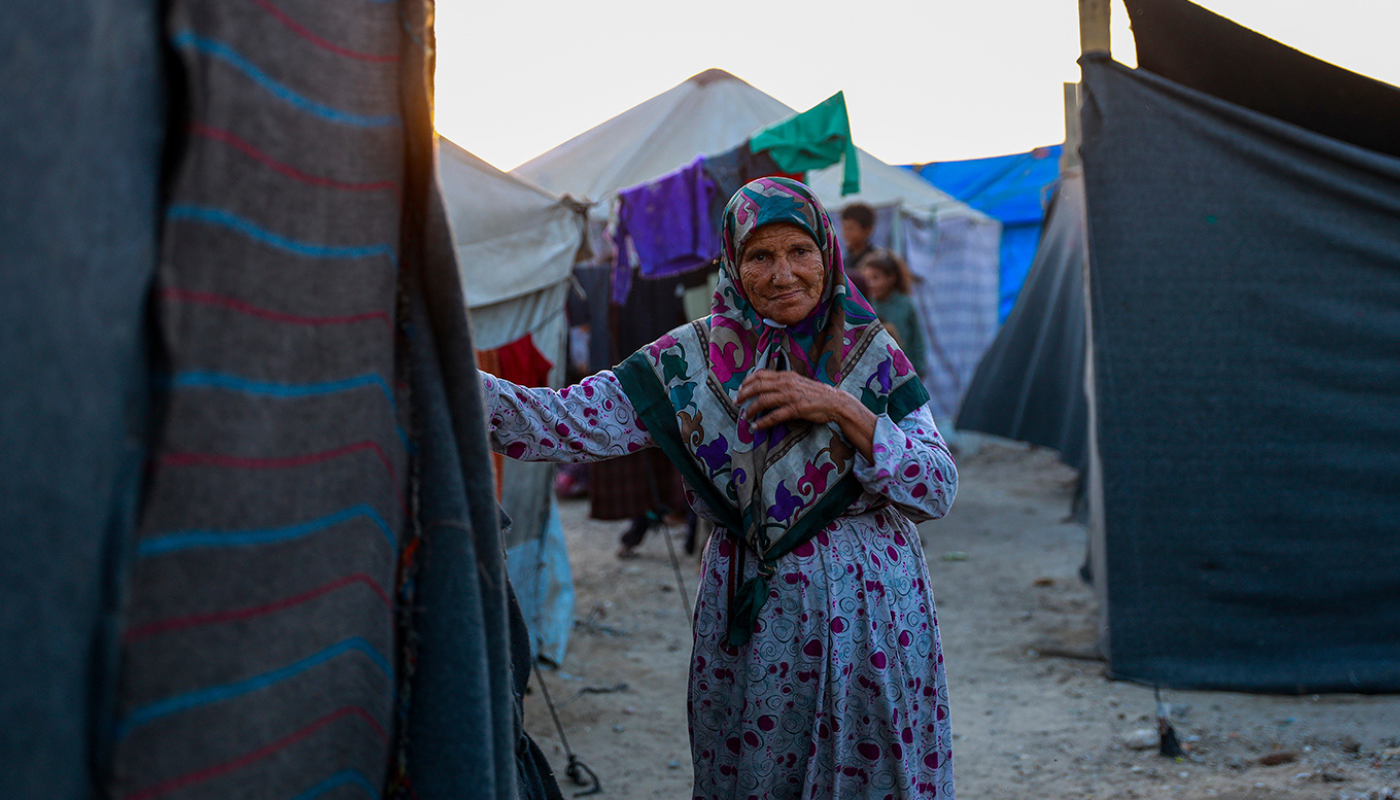
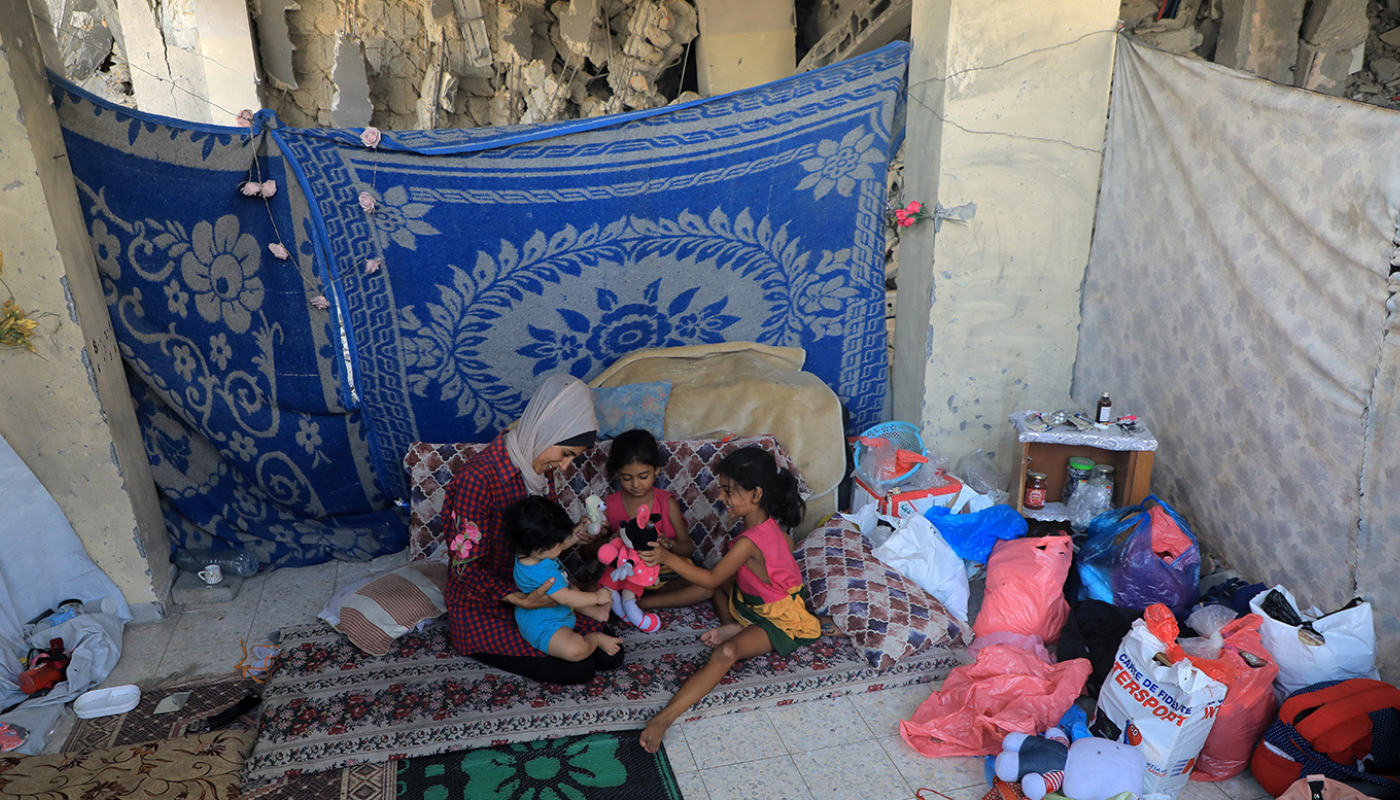
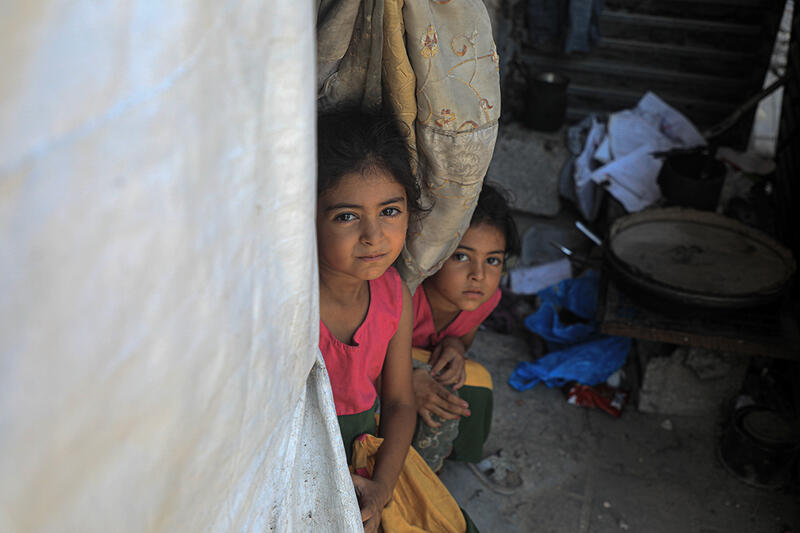
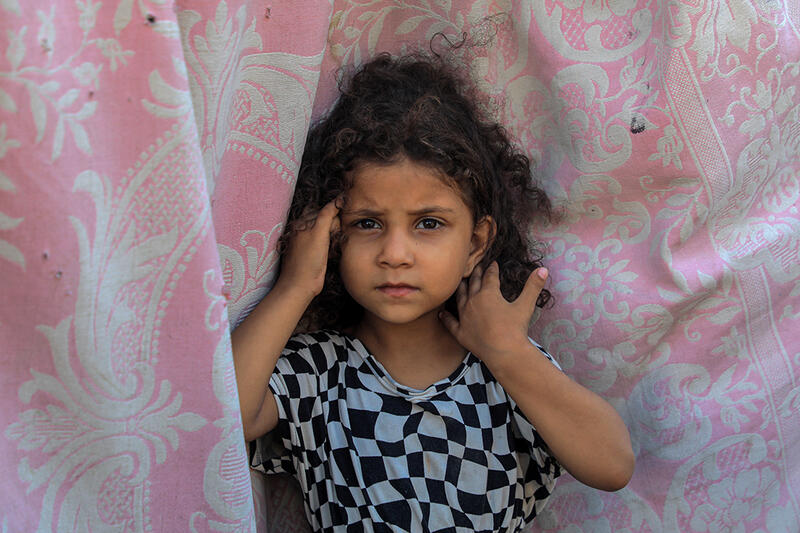
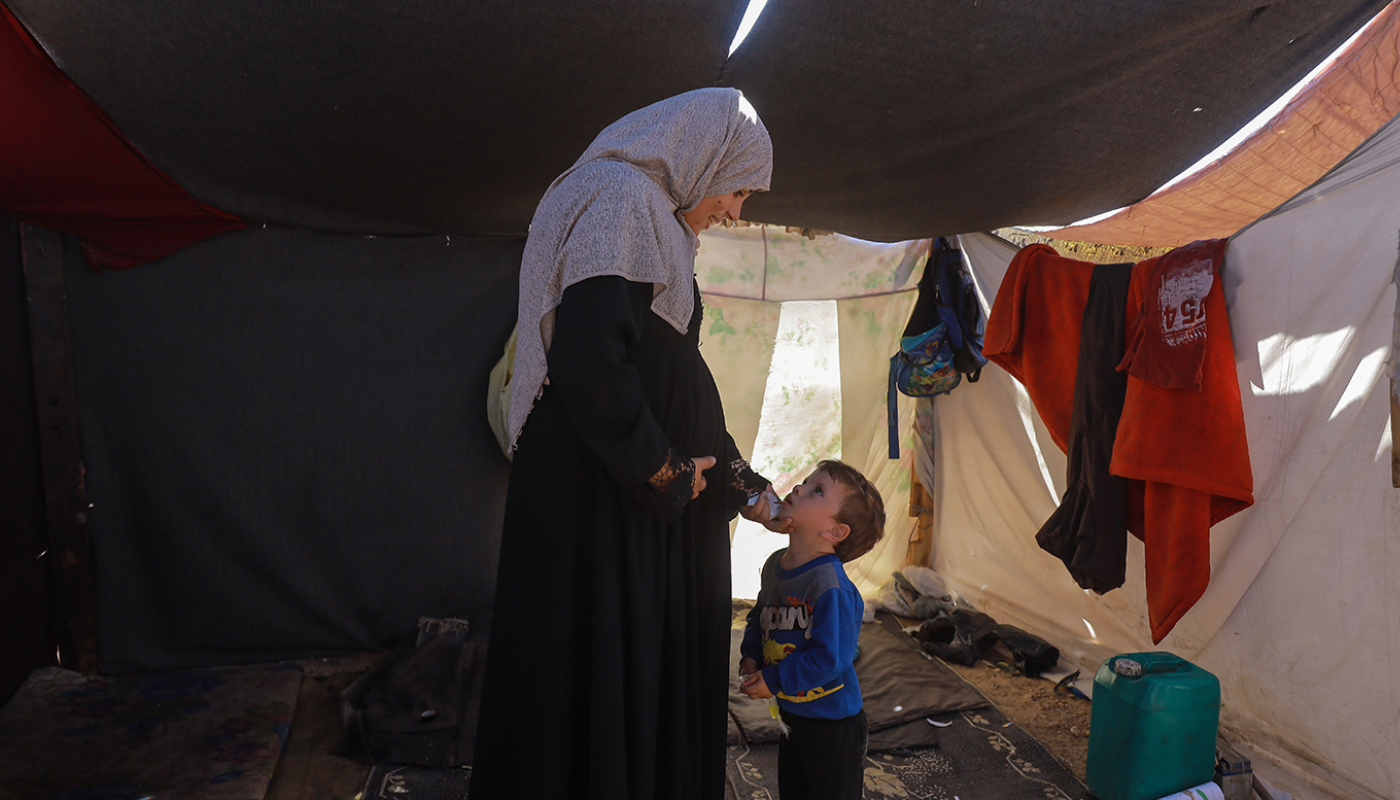
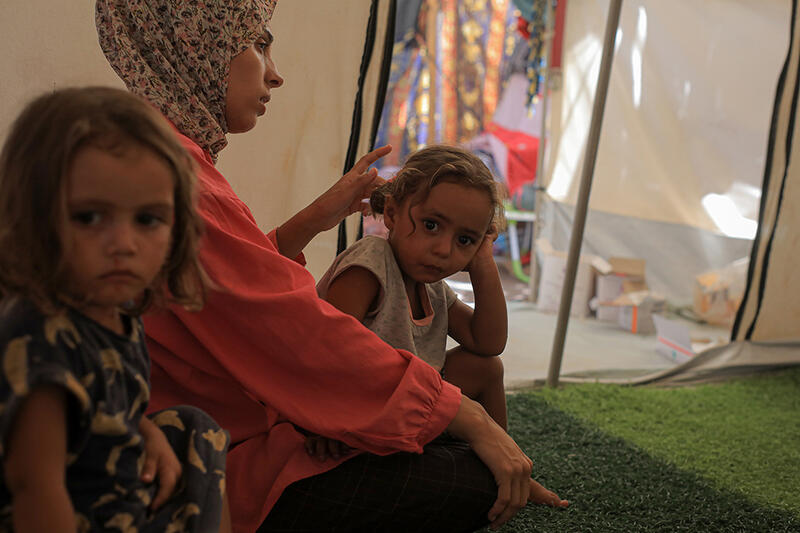
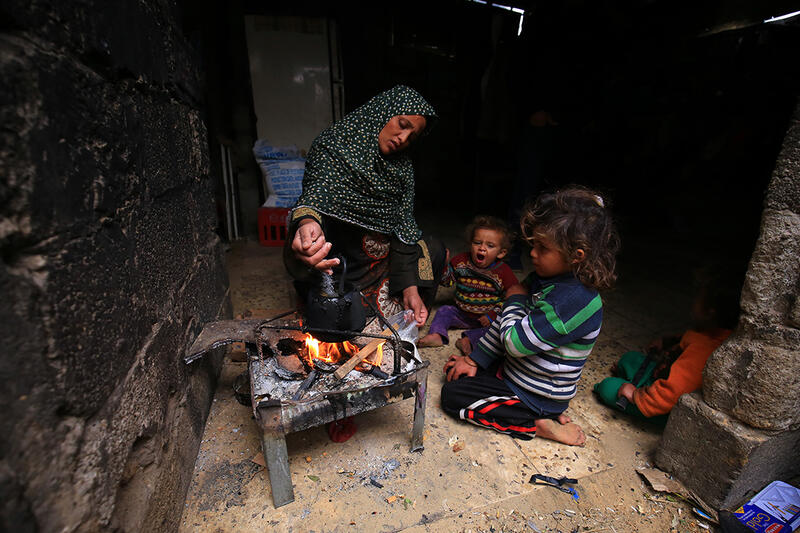
The war in Gaza has rendered pregnancy unsafe for women. Ongoing hostilities, the repeated evacuation orders, a breakdown in public order and safety, and the challenges of reaching people in need are preventing an effective humanitarian response.
UNFPA and partners continue to provide support despite the insurmountable circumstances, but the only way to ensure that people have access to the basics to survive – food, water, health services and safe shelter – is with an immediate and sustained ceasefire.
With the health care system under repeated attack, today there is not a single fully functioning hospital in Gaza. A lack of fuel and medicines, as well as the deaths and detention of health care workers, have further weakened the delivery of critical services. A shocking 500 health workers have been killed since the beginning of the war, making Gaza the most dangerous place to be a health worker.
With the health system in tatters, some nurses and doctors are volunteering to provide primary medical services from within displacement tents, including care for pregnant and postpartum women.
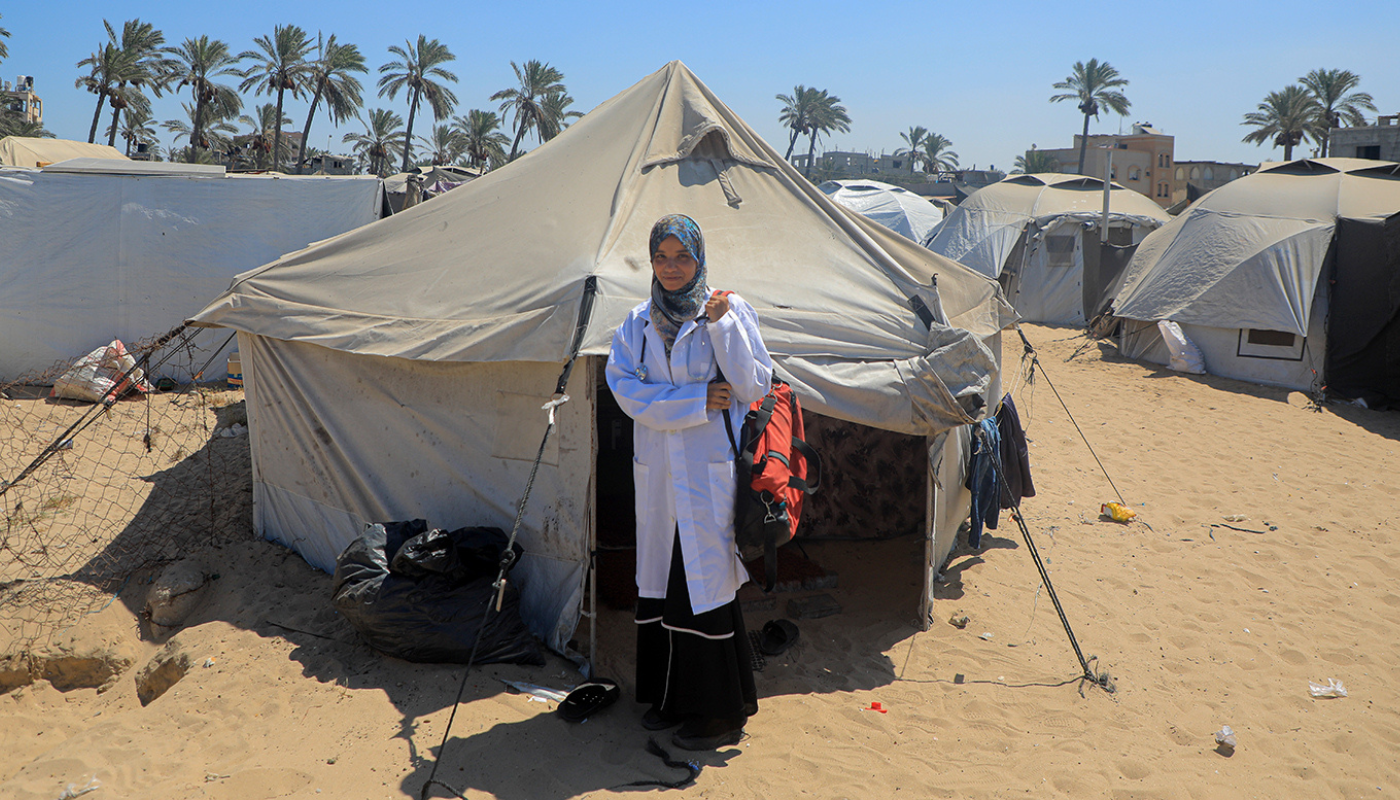
UNFPA’s efforts in Gaza include deploying six mobile maternal health units, which provide emergency obstetric care; deploying additional midwives to essential UNRWA clinics; supporting survivors of gender-based violence; and distributing life-saving equipment and supplies to the few hospitals that remain partially operational.
A call to action
“From day one of the war in Gaza, UNFPA has been fully committed to serving women and girls, under very difficult circumstances, to ensure that every child birth in Gaza is safe and that women are protected from any form of gender-based violence,” Peninnah T. Kyoyagala, Head of the UNFPA Office in Gaza, has said. “However, the situation continues to deteriorate as a result of the continuous evacuation orders, which have rendered many health facilities inaccessible. This catastrophic situation must end. The war must end now and not tomorrow.”
You can help provide emergency health care services to pregnant women, new mothers and newborns and protection services to women at risk of violence by supporting UNFPA in Gaza here.

